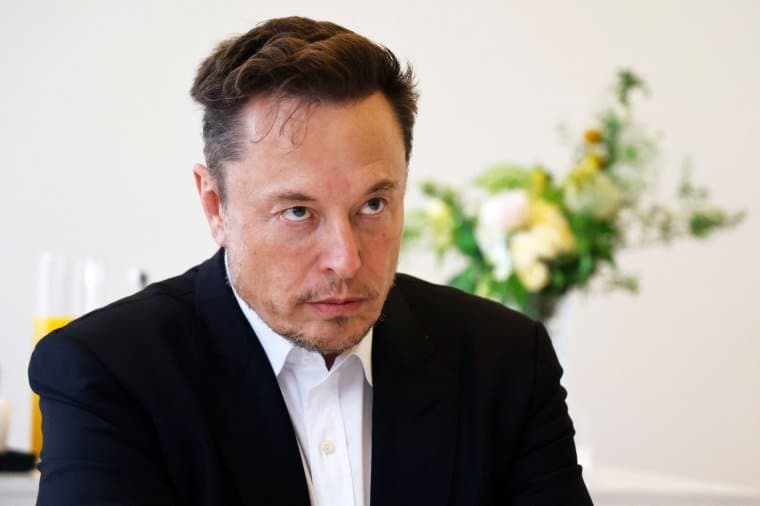Elon Musk’s Bold Take on Trump’s Tax Bill: What It Means for Finance
Explore Elon Musk’s sharp criticism of President Trump’s tax bill, its impact on federal spending, and what this means for taxpayers and investors navigating today’s financial landscape.

Key Takeaways
- Elon Musk calls Trump’s tax bill a ‘disgusting abomination’ due to excessive spending.
- The bill includes provisions that could eliminate Tesla’s $7,500 EV tax credit.
- White House officials were surprised by Musk’s public criticism despite private talks.
- Senator Rand Paul shares Musk’s concerns about rising national debt.
- Congress aims to pass the bill before July 4 amid heated debates.

When Elon Musk, the tech billionaire and former head of the U.S. Department of Government Efficiency (DOGE), publicly brands President Trump’s tax and immigration bill as a “disgusting abomination,” it’s more than just a headline grabber—it’s a wake-up call. Musk’s sharp words highlight concerns about the bill’s massive spending and its potential to push America toward unsustainable debt. Despite Musk’s previous gentler critiques, his recent posts on X (formerly Twitter) have caught White House officials off guard, signaling a rare public clash. This article unpacks Musk’s fiery stance, the bill’s key features including the fate of Tesla’s electric vehicle tax credits, and the broader debate over fiscal responsibility. Whether you’re a taxpayer, investor, or policy watcher, understanding this controversy sheds light on how government spending decisions ripple through the economy and your wallet.
Unpacking Musk’s Criticism
Elon Musk didn’t hold back when he called President Trump’s tax and immigration bill a “disgusting abomination.” His frustration boiled over on X, where he slammed the bill as “massive, outrageous, pork-filled” and accused Congress of pushing America toward bankruptcy. This wasn’t just a casual gripe; Musk’s words carried weight because of his recent role leading the Department of Government Efficiency, a government effort to cut costs. The surprise from White House officials was palpable—they knew Musk’s reservations but didn’t expect such a public, scathing rebuke. Musk’s blunt language reflects a broader skepticism about government spending bills stuffed with special interests and hidden costs. For readers, this serves as a reminder that even billionaires with insider access can become vocal critics when fiscal responsibility is at stake.
The Bill’s Impact on Electric Vehicle Credits
Tesla, Elon Musk’s flagship company, has long benefited from federal tax credits that offer consumers up to $7,500 off certain electric vehicles made in the U.S. The proposed GOP bill threatens to eliminate these credits, a move that directly affects Tesla’s sales incentives and Musk’s vision for clean energy adoption. House Speaker Mike Johnson, defending the bill, acknowledged the importance of the electric vehicle mandate to Musk but expressed disappointment over Musk’s sweeping criticism. This clash highlights how tax policy can influence industry growth and consumer choices. For drivers eyeing an EV, losing these credits could mean paying thousands more upfront, potentially slowing the shift toward greener transportation. It’s a vivid example of how government spending decisions trickle down to everyday financial decisions.
Debt Ceiling Debate Heating Up
One of the bill’s most contentious elements is the inclusion of a debt ceiling increase, which some lawmakers, including Senator Rand Paul, oppose. Paul echoed Musk’s concerns, calling for the debt ceiling to be separated from the spending package. He argued that combining the two is “just not a conservative thing to do” and that he couldn’t support the bill as it stands. Senate Majority Leader John Thune, however, plans to push the bill through before July 4, refusing to drop the debt ceiling language. This standoff reveals the tightrope politicians walk between funding government operations and managing national debt. For taxpayers, the debate signals ongoing uncertainty about fiscal policy and its long-term consequences on economic stability.
Political Fallout and Public Reaction
Musk’s public condemnation has stirred waves beyond the White House halls. His call to “fire all politicians who betrayed the American people” in the upcoming elections taps into a widespread frustration with political gridlock and perceived betrayals. While Musk once played the role of Trump’s “first buddy,” frequently meeting in the Oval Office to push for spending cuts, this sharp pivot underscores how financial policies can fracture even close alliances. Republican leaders like Mike Johnson have pushed back, describing Musk’s stance as “terribly wrong” and surprising given their recent friendly conversations. This drama illustrates how financial legislation isn’t just about numbers—it’s deeply personal and political, affecting reputations and alliances.
What This Means for Your Wallet
Beyond the political theater, the tax bill’s fate has real implications for everyday Americans. If passed, the bill’s spending could increase the budget deficit, potentially leading to higher taxes or reduced government services down the line. The possible removal of EV tax credits means consumers might face steeper prices for electric cars, slowing adoption of cleaner technologies. Meanwhile, the unresolved debt ceiling debate adds uncertainty to financial markets and government funding. For individuals, this underscores the importance of staying informed about how federal policies shape economic conditions. Whether you’re budgeting for a new car or watching your investments, understanding these dynamics helps you steer your finances through turbulent political waters.
Long Story Short
Elon Musk’s blunt condemnation of President Trump’s tax bill underscores a growing unease about government spending and fiscal discipline. His call to “fire all politicians who betrayed the American people” echoes a frustration felt by many who worry about ballooning deficits and the long-term impact on the economy. The bill’s potential to eliminate valuable tax credits for electric vehicles like Tesla’s adds a personal stake for Musk and consumers alike. Meanwhile, lawmakers like Senator Rand Paul align with Musk’s concerns, emphasizing the need to separate debt ceiling hikes from spending legislation. For everyday Americans, this debate isn’t just political theater—it’s about how tax policies shape financial opportunities and burdens. Staying informed and critically examining such bills empowers you to navigate the complex dance of politics and personal finance with clarity and confidence.